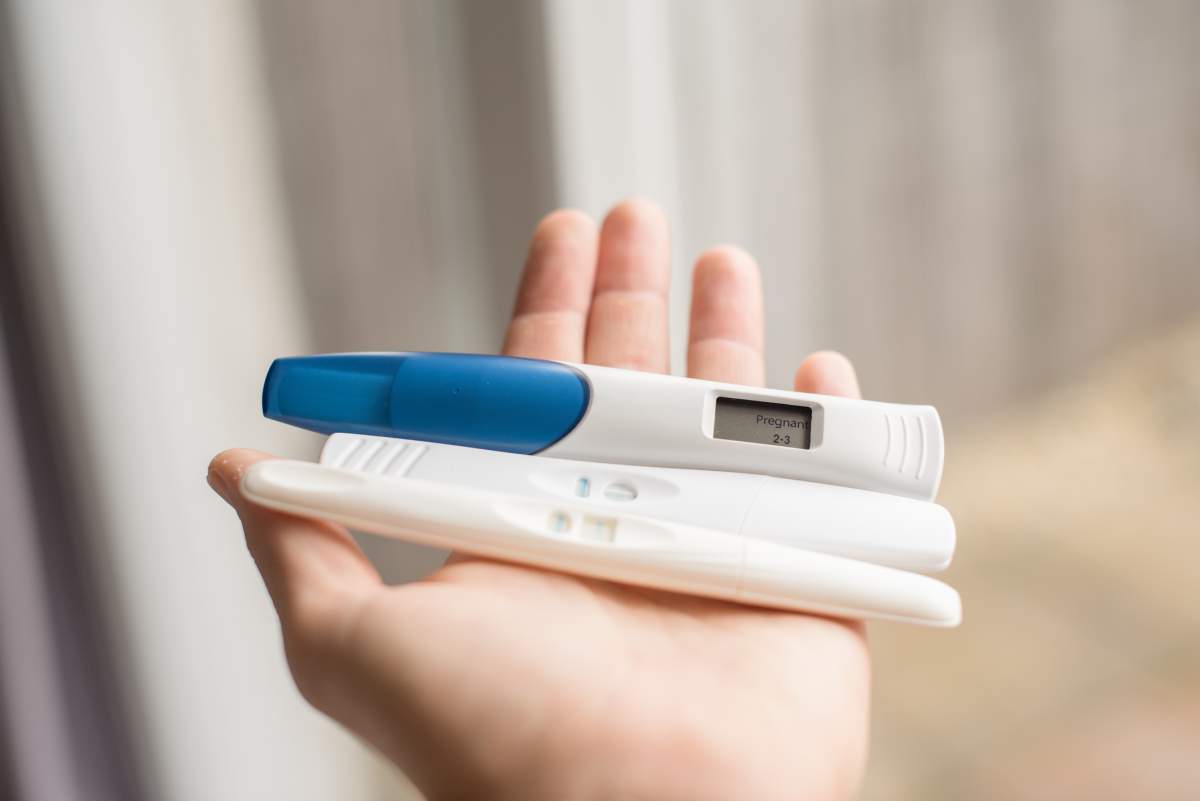It’s one thing to retake a pregnancy test just to be sure, but for some women, taking up to 20 pregnancy tests after already positive results can quickly become addictive.

According to a recent report by U.K. parenting site Channel Mum, 62 per cent of expecting mothers continue to take pregnancy tests, even though they are already pregnant, the Independent reports.
The study of 1,435 mothers revealed one in 12 were hooked on pregnancy tests and took them up until 12 weeks of their pregnancies. Seven per cent of mothers-to-be said they took 10 tests, while one in 20 said they took 16 or more before they finally accepted they were pregnant. On top of this, a 2016 feature by Vice Broadly reveals some women even took 10 to 20 pregnancy tests over the course of a few days.
Pee-on-a-stick (POAS) addiction or pregnancy test addiction isn’t anything new, women have been sharing and posting their experiences on sites like YouTube and forums on BabyCenter, What To Expect, Net Mums and other sites for years.
READ MORE: Natural Cycles contraceptive app blamed for 37 unwanted pregnancies
She adds, however, it’s important not to get addicted to taking these tests, because over time, it can get expensive.

Get weekly health news
“We have heard of mums testing up to five times a day to check they are still pregnant, so if you are that anxious, then get professional support,” she continued.
READ MORE: Pregnant woman finishes college exam while in labour
Online community
Vice adds Ashley Morrison, a pregnancy test addict who launched her website Peeonastickfreak.com (which is currently unavailable), launched the site after suffering a miscarriage. The site was meant to help other women going through similar addictions, as well as teaching them about the latest home pregnancy tests.
On YouTube, you can find hundreds of video results of women sharing their addiction stories, reviewing pregnancy tests or even sharing a live video of finding out if the test is positive or not.
Some videos, like this one by user YouTube britt786, shows her using several methods of home pregnancy tests just after four weeks of a positive result. She even shares symptoms she currently has and typical pregnancy ones she doesn’t.
On forums like The Bump, women describe taking tests a few times a week at six weeks pregnant, while others caution moms-to-be to save their money in case they suffer a miscarriage.
Dr. Jillian Roberts, child psychologist of Family Sparks, says when taking pregnancy tests becomes addictive, it’s a sign of the mother’s anxiety.
“This is time of high anxiety and a time of loss for these women as there is trauma when people have repeated miscarriages or failed IVF treatments,” she tells Global News.
“These actions are symptomatic of a trauma reaction — women are trying to cope with those intense feelings of anxiety about the possibility of another loss. Any time you’re in that zone of ‘too much’ behaviours, it means that you are out of balance and need care.
Channel Mum notes not only were women overspending on home pregnancy tests, but they were also trying DIY methods like mixing toothpaste with urine (some say a change in colour means you’re pregnant) or mixing urine with bleach, the Independent notes.
Finding support
Roberts adds because of the pressure put on women in particular to conceive, it is important family members and friends are paying attention to any addictive behaviours that become out of control.
“In a socio-cultural context, having children can be core to a woman’s identity so not being able to have one can create core angst and distress,” she continues.
READ MORE: Woman gets pregnant with her own child while carrying surrogate baby
“If a woman is going to this extent, it means she needs professional support from a family doctor and counsellor with experience in fertility issues. As her friends and family, you should not get upset with her, judge her or dismiss her. Instead, help her get the support she needs and emanate unconditional empathy and understanding.”





Comments
Want to discuss? Please read our Commenting Policy first.